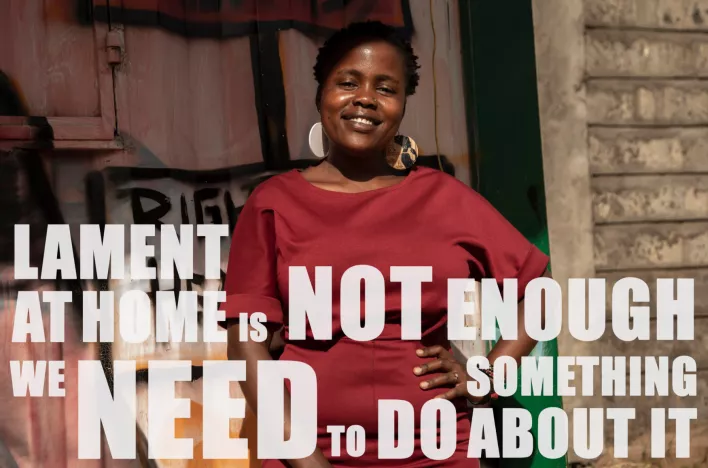On behalf of Peace Brigades International-USA, we would like to thank you for your support and commitment to helping protect human rights defenders.
As we rapidly approach the end of another year, Peace Brigades International-USA is preparing for the challenges and obstacles that may lay ahead for the rest of 2020 and next year. This year has been an unprecedented year due to the coronavirus pandemic, which has claimed the lives of more than 300,000 people in the United States, and more than 1.62 million worldwide. From strict quarantine measures, loss of employment, we have all felt the consequences of the coronavirus. COVID-19 has proven to be a test for all societies, governments, communities and individuals.
One of the lessons that we have learned from this is that we are all in this together.
COVID-19 has also had an enormous impact in the lives of human rights defenders and the communities that PBI accompanies. Since the outbreak of the coronavirus, governments around the world and in many countries that we work have implemented strict restrictions on the freedom of movement and the freedom of assembly. In many instances, these restrictions have been used by criminals and government forces to threaten and intimidate social leaders, human rights defenders, and environmental defenders, taking advantage of the coronavirus lockdowns. In addition, Hurricane Eta and Iota have left widespread devastation in many of the communities that we work on in Nicaragua, Honduras and Guatemala. These communities that have already been deeply affected by the coronavirus pandemic.
State violence to suppress social movements is an international issue.
This year we also experienced a rise in civic society movements in the United States and in many countries across the world, protesting police violence. The killings of George Floyd and Breonna Taylor have dominated the headlines and led to accelerated calls for police reform in the United States. In Colombia protests erupted after the death of 46-year-old Javier Ordoñez, who was repeatedly tasered by Colombian police and later died in police custody. In Honduras, water defenders resisting an illegal, poisonous mining project in Guapinol have been arrested and criminalized.
But, in the midst of these crises, your support can bring hope to human rights defenders and communities fighting for social and environmental rights.
With your support, we can ensure that PBI-USA is financially prepared for next year, so that we can continue to provide support to our projects, recruiting volunteers, advocating, and building support networks to protect social leaders. You can donate to our end-of-year campaign now by clicking here.
By donating today, you will help us partner with more defenders and organizations providing the skills, tools and protection they need to continue doing their work, defending human rights, and defending the Earth.
With your donation, we can:
- Strengthen our efforts to find volunteers to accompany defenders in Colombia, Guatemala, Honduras, Kenya, Mexico, Indonesia, Nepal and Nicaragua.
- Increase our advocacy efforts with webinars, urgent action petitions, and meetings with officials to draw international attention and support to grassroots causes and defenders
- Advocate for stronger protections for human rights defenders, to ensure that businesses and government fulfill their obligations
- Expand our audience to increase visibility of the issues that the defenders are working on through articles, social media posts and emails
Looking ahead, 2021 is an important year for PBI, because it is our 40th year anniversary. We have many activities planned to celebrate this important milestone in our history together.
Please, consider donating today to help us empower human rights defenders in 2021.
Thank you for your continuous support!

Photo by Manu Valcarce.
“I lost so many friends to extrajudicial killings. Most of them were innocent, and for those who were not you just need to let the courts do their work.
I realized that lamenting at home wasn’t enough; we needed to get organized and do something about it.”
– Faith Kasina, coordinator of the Kayole Social Justice Centre in Nairobi, Kenya.
